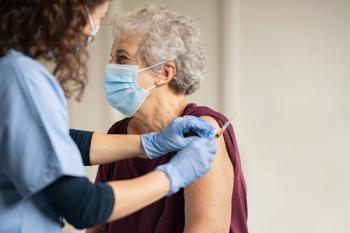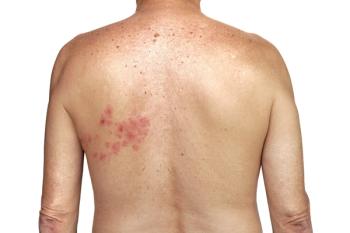
Shingles Vaccination Associated with Lower Risk of Dementia
Receiving both the Herpes zoster and Tdap vaccines can reduce dementia risk by half.
Vaccination against
Results of the clinical investigation, published recently in the Journal of the American Geriatrics Society, concluded that the receipt of both HZV and Tdap (tetanus, diphtheria, pertussis) vaccinationwas significantly associated with a 50% lower risk of dementia.
“Animal and human studies have provided support for infectious etiology of Alzheimer's diseaseand dementia,” the researchers wrote. “Treatment and/or prevention of viral infection may reduce neurocognitive impairment through this mechanism.”
They added, “Training of the immune system with a lifetime of vaccinations may lower dementia risk by decreasing neuroinflammation.”
Conducted with support from the Benter Foundation and in conjunction with resources from the Veterans Health Administration (VHA), the study examined VHA and private sector MarketScan medical claims data for more than 200,000 individuals ≥65 years of age. It focused on determining if patients who had both the HZV and Tdap vaccinations had a lower risk for dementia than those with HZV alone, Tdap alone, or neither.
In addition to the 50% reduction in risk of dementia observed for study participants who received both vaccines,reductions of 25% and 18% were noted for those who received HZV alone or Tdap alone, respectively.For patients who received both types of vaccines compared withonly 1 type of vaccine, there was a 32% to 39% reduction in dementia risk.
“The study is important because it suggests that obtaining appropriate adult vaccinations could reduce your risk of dementia up to 50%, which is dramatically greater than any suggested other types of health behavior or risk factors,” said senior study author Jeffrey Scherrer, PhD,professor and director, Research Department of Family and Community Medicine at Saint Louis University School of Medicine.
“The results suggest a non-specific effect of vaccination in that the reduced risk of dementia is not explained by vaccinations preventing shingles or tetanus, diphtheria or pertussis,” he told Drug Topics. “It’s quite possible that receipt of adult vaccinations is an indicator of a lifetime use of appropriate vaccination which trains the immune systemto respond to bacterial and viral threats and prevents chronic inflammation and neurotoxicity.”
Both the recombinant zoster vaccine (
The study’s conclusions are consistent with prior research into the role adultvaccination plays in lowering dementia risk. Scherrer said tha tif vaccination is confirmed as a means to prevent dementia, it changes existing approaches to reduce cognitive decline.
“This could revolutionize our approach to dementia and cognitive decline by offering the possibility that we could cut the population risk of dementia in half by existing, cheap vaccinations,” he explained. “Is this effective for people who have already started that decline? We don’t know yet. Could it slow the decline? We don’t know, and that needs to be investigated. Maybe we can delay the onset, maybe we can prevent it.”
References
- Wiemken TL, Salas J, Morley JE, Hoft DF, Jacobs C, Scherrer JF.
Comparison of rates of dementia among older recipients of two, one, or no vaccinations. J Am Geriatr Soc. Published online December 12, 2021. Doi:10.1111/jgs.17606 - Adult immunization schedule. CDC. Reviewed February 12, 2021. Accessed January 24, 2022.
https://www.cdc.gov/vaccines/schedules/hcp/imz/adult.html#vacc-adult
Newsletter
Pharmacy practice is always changing. Stay ahead of the curve with the Drug Topics newsletter and get the latest drug information, industry trends, and patient care tips.























